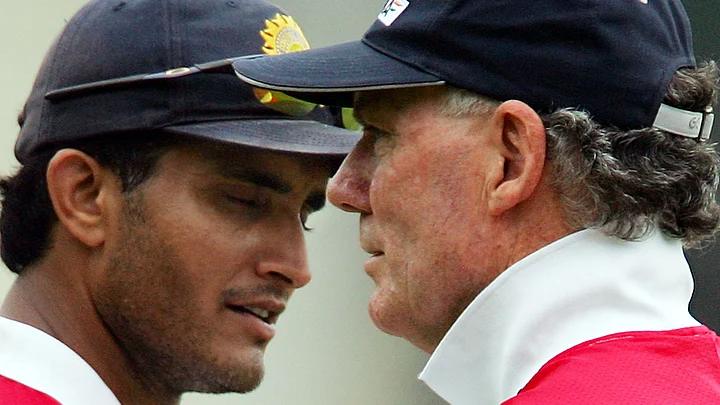(This excerpt has been published with the permission of Juggernaut from their book ‘A Century is Not Enough’ by Sourav Ganguly.)
The battle with Chappell was the darkest chapter of my cricketing life. It was perhaps the worst-kept secret in India that the India coach was dead against bringing back Sourav Ganguly.
Through the media he had even offered me a benefit match. My only hope remained the captain who happened to be my deputy for five years and a close friend. I remember calling Dravid twice on the phone and asking him what the way forward for me was. If I recall correctly the first call was in April and the next was in June 2006. The captain had told me that it was not the end of the road and that my time would come. But nothing changed.
Selection meetings would be held every now and then. New replacements would come in. But invariably someone else would be picked ahead of me. I failed to understand what this was about. Ability or something else? Whatever the problem was, the message was crystal clear. If Chappell remained in the team there was no chance for me. The team eventually got picked by five selectors influenced by the all-powerful coach. For that group I was persona non grata irrespective of what the rest of India thought
I even had a one-on-one meeting with the then board supremo Sharad Pawar. Mr Pawar was extremely kind to me and I have not forgotten his words. But what he told me was hard to digest. He said, ‘Personally I have a good impression about you. But the coach tends to think otherwise. He says you are a disruptive influence on the team.’ I was hurt by the accusation and became slightly emotional. I said, sir , why don’t you find out from my colleagues whether there has been any disruption because of me? I have been the captain of this team for five years and now suddenly I have become a disruptive force? I have built this team brick by brick . Have sacrificed my batting slots. Have often fought with opposition captains so that they take Indians seriously. Have led India in almost 200 games. And now suddenly I am being branded as a disruptive force?
Mr Pawar said, ‘I believe you. But to be absolutely sure I will have to speak to the team members .’ I later wondered whether his conversation with Sachin had led to my inclusion for the Pakistan tour. I never found out. Mr Pawar, however, was a one-time lifeline– now used and gone. I could not keep bothering him. It was not right. But I will always hold close to my heart the fairness with which Mr Pawar handled the situation. Having exhausted all my options, I wondered whether there was any light at the end of the tunnel.
At home the situation was tense. My wife didn’t say anything but her demeanour was sombre. I would see astrologers coming in and out of our house to advise my mother. She started believing that wearing a certain ring or a taga (piece of thread) was the only way to change my fortune. I did not. My father rarely discussed professional matters with me. But one evening he brought up a newspaper report which suggested that after the Indian team’s one-day series win in the West Indies, the doors were closed on me forever. I was discussing cricketing matters with Bapi after a long time. It seemed we had gone back to the days when I was a fourteen-year-old, uncertain and eager boy and he my mentor.
He felt that every time India won a cricket match, my chances of getting back to the team appeared slimmer. He said, ‘Maharaj, you have achieved a lot. Why don’t you walk away with pride? ’ His voice was full of concern and filled with sadness. It made me feel even more helpless. Finally he came out and said what he was trying hard not to say. ‘Maharaj, trust me, I don’t see any window for you. Sadly, there is no hope.’ It was a very moving conversation between father and son. My father is no more but I vividly recall what I had told him. I said, no one can play forever. The all-time greats, be it a Maradona, Sampras or Gavaskar, had to stop some day. I do know I will have to go sooner or later. But I do not want to live with the thought that I did not try hard enough, when the chips were down.
I made a decision that I shall keep on fighting till I find it impossible to continue. Yes, I do have the easy option of retirement . Of enjoying the fortune that I have made. But I do not want to relax for the rest of my life sitting on a sofa and thinking that I did not give my best. That day I really will go down in my own eyes.
My dad was very supportive of whatever I did in life and he just nodded. Deep down I knew he was not convinced.
Conversation over, I returned to my room. I told myself that night, Sourav Ganguly, give yourself one more year and see what happens. I made three decisions that night. I shall train the hardest. I will play in all the Ranji matches this season. I am not going to give up. By then I had hired a personal trainer. I would train with him six days a week. Fifty per cent of the training was to get myself fit. The other 50 per cent was spent in getting the anger out of my system.
